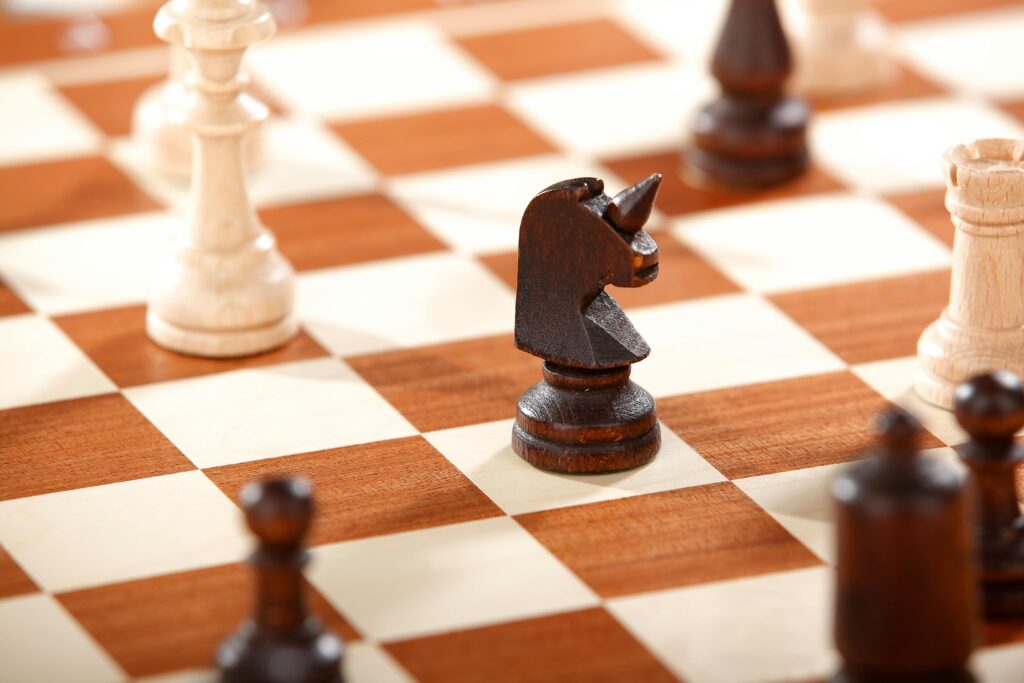Brain exercises are essential for maintaining and improving cognitive function, memory, and mental sharpness. Just like physical exercises strengthen the muscles, brain exercises target different parts of the brain to enhance mental abilities.
Engaging in regular brain exercises can help prevent cognitive decline, improve focus, and boost creativity.
By incorporating various brain exercises into your routine, you can sharpen your thinking, improve problem-solving skills, and strengthen memory. Whether it’s solving puzzles, using brain training apps, or learning new skills, these exercises promote overall mental health.
In this article, we’ll explore 10 brain exercises that can help you improve cognitive function and keep your brain sharp.
Memory Games and Exercises

Memory games are a fun and effective way to enhance cognitive function. Games such as puzzles, matching cards, and memory recall exercises are excellent for stimulating the brain. These exercises help improve your short-term and long-term memory.
By practicing memory exercises regularly, you train your brain to retain and recall information more efficiently. This, in turn, strengthens connections between neurons and helps improve memory retention.
For example, playing games like Sudoku, crosswords, or even simple matching games can boost your memory. You can also engage in memory recall activities where you try to remember a series of numbers, words, or images.
These types of exercises can be done alone or with friends, making them enjoyable while still highly beneficial for brain health.
Brain Training Apps
In today’s digital age, brain training apps are a great tool for exercising the brain. Apps like Lumosity, Peak, and Elevate are designed specifically to help users improve various aspects of brain function, including memory, problem-solving, and focus.
These apps provide a variety of brain exercises that are tailored to challenge different areas of the brain. By using brain training apps regularly, you can track your progress and see improvements in cognitive performance over time.
Whether it’s a game that tests your ability to solve logic puzzles, a task that improves your verbal memory, or an activity that sharpens your attention span, brain training apps are a fun and engaging way to exercise your brain.
Most of these apps use scientifically-backed exercises and are designed to gradually increase the difficulty level as you improve, ensuring that your brain stays challenged. Regular use of these apps can help boost your cognitive abilities, enhance your memory, and improve your overall brain health.
Problem-Solving Exercises
Problem-solving exercises are another excellent way to keep your brain active and sharp. Engaging in activities such as riddles, brain teasers, and logic puzzles challenges your ability to think critically and logically.
These types of exercises require you to think outside the box and approach problems from different perspectives. Solving puzzles stimulates the brain’s reasoning centers, helping to improve logical thinking, analytical skills, and creativity.
Examples of popular problem-solving exercises include crossword puzzles, Sudoku, and various types of brain teasers. These exercises require you to use your brain’s problem-solving abilities and encourage mental flexibility. “Brain exercises” such as these help to strengthen synaptic connections, improving the brain’s ability to process information efficiently.
Problem-solving activities also help keep the mind agile, reduce mental fatigue, and increase concentration. By regularly engaging in problem-solving exercises, you are not only keeping your brain sharp but also boosting your ability to adapt to new situations and solve problems with ease.
Physical Exercise for the Brain
Physical exercise is one of the most effective ways to improve brain function. Regular physical activity increases blood flow to the brain, which in turn enhances cognitive performance. Exercise helps release neurotransmitters like dopamine, serotonin, and norepinephrine, all of which are vital for brain health.
Physical exercise also reduces stress, which can negatively impact brain function. Examples of brain-boosting physical activities include yoga, dancing, and aerobic exercises. These activities not only promote overall health but also improve mental clarity, focus, and memory.
For instance, yoga has been shown to improve focus, reduce anxiety, and enhance memory. Aerobic exercises, such as running or swimming, have been linked to improved cognitive function and better mental performance.
Even simple activities like walking or stretching can enhance blood flow to the brain, improving cognitive health. Physical exercise has also been shown to reduce the risk of neurodegenerative diseases, making it an essential component of brain health.
Read More
Best 10 Brain-boosting Foods
How To Say No To A Guy

Meditation and Mindfulness
Meditation and mindfulness are two powerful brain exercises that can help sharpen your mind. Mindfulness involves paying attention to the present moment and focusing on your thoughts, feelings, and sensations without judgment.
Meditation, on the other hand, is a practice that involves focusing the mind to achieve a state of calmness and clarity. Both mindfulness and meditation have been shown to improve brain function by reducing stress, enhancing focus, and improving mental clarity.
These practices can help you manage anxiety, improve memory, and boost your ability to concentrate.
Studies have shown that regular meditation can increase gray matter in the brain, which is associated with improved memory and emotional regulation. Mindfulness helps you become more aware of your thoughts, enabling you to manage stress and reduce mental clutter.
By incorporating mindfulness and meditation into your daily routine, you can improve your ability to focus, reduce stress levels, and keep your brain sharp.
Learning a New Skill or Hobby
Learning a new skill or hobby is one of the best ways to challenge and strengthen the brain. When you engage in new activities, your brain is forced to form new connections and pathways, which helps to keep it sharp.
These activities stimulate different regions of the brain, promoting cognitive growth and enhancing memory. For example, playing a musical instrument is a highly effective brain exercise that improves both cognitive and motor skills.
Similarly, learning a new language or picking up a creative hobby like painting or knitting challenges the brain to think in new ways.
Research has shown that individuals who regularly engage in hobbies that require learning or problem-solving tend to have better cognitive performance and are less likely to experience cognitive decline as they age.
Whether it’s learning to play chess, taking up photography, or experimenting with cooking, new hobbies activate different brain areas and encourage mental flexibility, making them excellent brain exercises.
Brain-Boosting Nutrition

What you eat plays a significant role in maintaining and enhancing brain function. A healthy diet rich in brain-boosting nutrients is essential for cognitive health. Foods that are high in antioxidants, healthy fats, vitamins, and minerals can improve memory, concentration, and overall brain performance.
For instance, omega-3 fatty acids found in fish like salmon are essential for brain health and have been shown to improve cognitive function and memory retention.
Foods like blueberries, spinach, and nuts are also excellent for brain health due to their high antioxidant content, which helps protect the brain from oxidative stress.
A balanced diet that includes plenty of fruits, vegetables, and healthy fats supports the brain’s ability to function at its best. Incorporating brain-boosting foods into your meals is a simple yet effective brain exercise.
Additionally, staying hydrated by drinking enough water is crucial for brain function, as dehydration can impair concentration and memory. To optimize brain health, focus on incorporating a variety of nutrient-dense foods that support cognitive function, such as green leafy vegetables, fatty fish, and whole grains.
Socializing and Cognitive Health
Socializing is a vital aspect of mental well-being, and it plays a crucial role in cognitive health. Engaging in meaningful conversations and spending time with friends, family, or colleagues can stimulate the brain and enhance cognitive performance.
Social interaction provides both mental and emotional benefits, helping to reduce stress, combat feelings of isolation, and improve memory.
Research has shown that people who maintain strong social connections tend to have better cognitive function and are at a lower risk for mental decline. Participating in group activities, whether it’s playing a team sport, attending social events, or simply engaging in regular conversations, challenges the brain to process information, make decisions, and engage in creative thinking.
These mental workouts are especially beneficial as they combine social stimulation with cognitive engagement. In fact, studies have shown that people who engage in frequent social activities have better memory, improved problem-solving skills, and a sharper mind overall.
So, making time to socialize regularly is a simple yet effective way to keep your brain active and healthy.
Adequate Sleep for Mental Health
Adequate sleep is essential for brain function and overall cognitive health. During sleep, the brain consolidates memories, processes emotions, and removes toxins that accumulate throughout the day.
A lack of sleep can impair cognitive function, decrease concentration, and negatively impact mood. The connection between sleep and brain function is clear: sleep is vital for brain health.
To ensure optimal brain performance, it’s crucial to prioritize sleep. Adults should aim for 7 to 9 hours of sleep per night. Poor sleep quality can affect memory retention and the brain’s ability to solve problems and think critically.
To improve sleep quality, establish a consistent sleep routine, limit screen time before bed, and create a calming bedtime environment. Incorporating relaxation techniques such as reading or practicing deep breathing exercises before bed can also promote restful sleep.
By getting enough quality sleep, you give your brain the necessary time to recharge and prepare for the mental challenges of the next day.
Conclusion
In conclusion, brain exercises are crucial for maintaining cognitive health and improving brain function. By incorporating various activities like learning new skills, eating brain-boosting foods, socializing, and prioritizing sleep, you can support mental clarity, memory, and overall brain performance.
Brain exercises are not just about solving puzzles or doing mental math; they also involve taking care of your mental and physical health through lifestyle choices. It’s important to make these brain-boosting practices part of your daily routine.
By consistently engaging in activities that challenge and support your brain, you can enhance its abilities, delay cognitive decline, and maintain a sharp, agile mind throughout your life.
Remember that just like physical exercise, brain exercises require consistency and commitment for lasting results. So, start incorporating these practices today to optimize your brain health and keep your mind sharp for the future.
